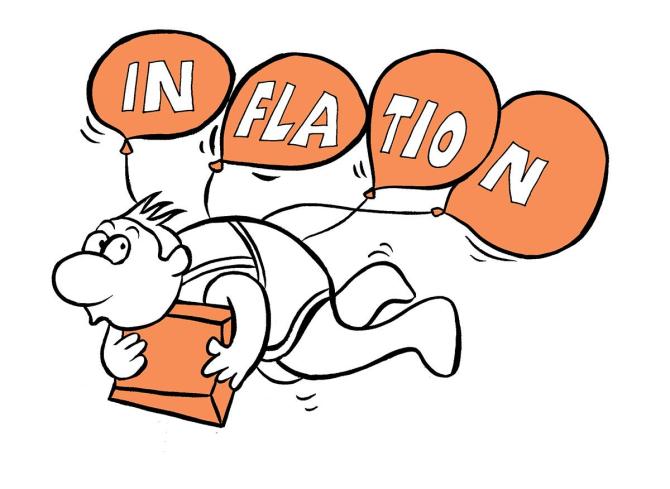‘We have delivered a bitter medicine. It will take time to work.’
Jayanth R Varma, member of the Reserve Bank of India’s monetary policy committee, explains why he wanted to pause interest rate hikes in an interview with Manojit Saha/Business Standard.
You have said the MPC should pause now on rates — the meeting minutes showed. But September inflation is at 7.4 per cent. Does that change your view?
No. Inflation somewhere in that range was expected.
What gives you the confidence that inflation will be 5 per cent one year ahead. Many times projections have gone wrong. And CPI inflation is still above 7 per cent…
That is true. There are uncertainties.
What I said is that monetary policy acts with a lag. It takes 5-6 quarters for the impact to be felt.
We started raising rates only in April. The effect of that has barely begun. What we have done already is very significant.
Effective tightening is more than two and a half per cent, which is a steep rise that we have done in four months.
When you have already given such a large dose of monetary tightening, the time has come to step back and let’s see what effect this is happening.
Much of this effect is still in the future. Let alone the real economy, the impact on the financial side is very little.
For example, the impact of deposit rates is only one-third of what we did till August.
When real deposit rates turn positive, it would stimulate savings and dampen consumption, reducing demand and dent inflation.
Lending rates have gone up, but their impact on the real economy is still in the future.
So we have to wait and see. By just raising interest rates, we cannot expect the effect to happen faster.
We had unacceptable high inflation for too long. But we had inadequate growth for even longer, five years. We are at a point where both are at unacceptable levels.
You have voted against the stance — which is a withdrawal of accommodation. What should have been the stance?
The stance, according to me, now is to wait and watch. That we have delivered a bitter medicine, we expect it to work. It will take time to work.
During this period, one has to be patient to see the impact of what we have done.
We should not lose our nerve and keep raising rates till inflation comes down.
Then we have to ease rates to deal with worse growth shocks.
Average CPI Inflation remained above 6% for three consecutive quarters, which constitutes a failure of MPC to meet the inflation target. What, according to you, is the reason for the failure?
There are three things that one should look at.
One is that the pandemic created enormous problems both for growth and inflation.
The second thing is what is going on in Ukraine, which has caused inflation to go to unacceptable levels.
The third thing is what I said a year ago, that we should start raising rates in mid and late 2021.
We held up for more than six months which delayed the response.
If we had started doing that in 2021, the impact would have been happening now.
So that is the third thing that we had delayed the rate hike by six months.
What are the steps the MPC should take to bring inflation back to 4%? What is the timeframe within which this should be achieved?
That breaks into two questions.
One is we need to bring inflation below 6 per cent, which has to be very, very quick, which is why we kept raising rates rapidly.
I believe in a quarter or two, and it will drop below 6 per cent. Then the question is how quickly we can bring it down to 5 per cent and then to 4 per cent.
Again I think we can bring it down to 5 per cent in a couple of quarters.
Bringing it down to 5 per cent in the next few quarters is essential.
The next question is how quickly we can bring it down to 4 per cent.
It also depends on how the economy is doing. There is no painless way of bringing inflation down.
You bring inflation down by pushing growth down. It is one thing to bring growth down when the economy is doing well.
If the economy is growing only at 6 per cent and you want to bring it down to 4 per cent, that is much more painful.
There the MPC has to balance its mandate and ask how much pain we need to inflict on the economy versus how quickly we want to bring it down to 4 per cent.
Let’s see what happens over a quarter or two.
If we see inflation gliding down, we could continue to let it slide down and effect a soft landing.
The question is whether we want a hard landing or a soft landing.
We would prefer a soft landing. But if inflation remains well entrenched and projected decline does not happen, then we will need to raise even more.
The RBI has to write a letter to the government explaining why it has failed. Do you think the letter should be made public?
As an MPC member, I do not want to comment on that.
As a private citizen, I have a strong view, but as an MPC member I would not like to comment.
Feature Presentation: Rajesh Alva/Rediff.com
Source: Read Full Article



